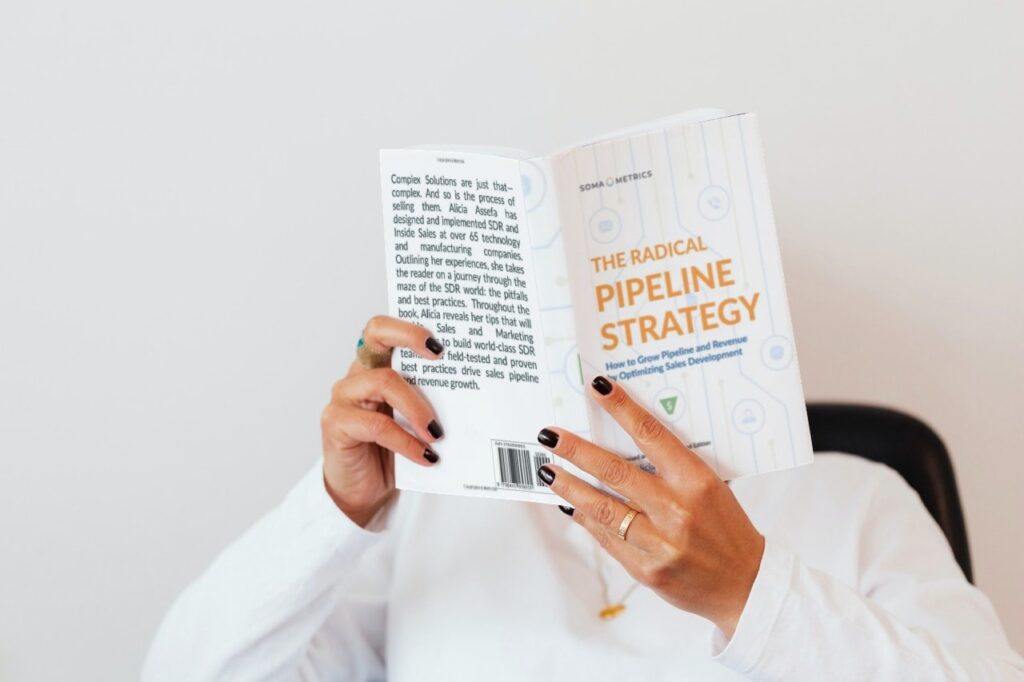As I mentioned in a previous blog (“How Difficult Is It to Generate a Meeting?“), most of the companies that I have consulted with hire people who have never been in a sales development reps (SDR) role. I advocate hiring SDRs with at least 1 to 2 years of relevant SDR career experience. You want to hire the right SDR candidates who understand that they will hunt for qualified prospects to qualify them for pain and need.
Setting SDR Candidate Expectations
During the interview process, you want to qualify candidates for their willingness to call cold into prospects and find those SDRs who aren’t afraid to speak to decision makers. A good candidate who goes above and beyond the SDR role will prove they are willing to:
- Make a lot of dials (70-100) per day. This is crucial, as it is more difficult than ever to get professionals on the phone.
- Hunt for prospects in your Ideal Customer Profile (ICP) using tools such as LinkedIn Sales Navigator, for example.
- Call decision makers and sales managers. Most of your Sales Reps will not want to speak to a person who has been assigned to “research” a topic. This is a bone of contention that I have seen many times between SDR’s and Sales. Sales Reps want meetings set with “Decision Makers” or someone involved in the “Decision Process”. They don’t want meetings with non-decision makers. It is easier, however, for SDRs to get the non-decision makers to take their calls. Unfortunately, as meetings with these prospects are not an appropriate fit, the SDR has wasted time with a non-viable prospect.
- Manage a set of Target Accounts which may require cold calls and emails to prospects
- Understand how to use a call guide and speak to the benefits or value of your offering in a manner that shows how your solution fills a prospect’s need. If you don’t identify these traits early on in the interview process, you will build an unproductive team. In short, you won’t hit your meeting quota, nor build a quality pipeline. Your team’s job is to build a sales pipeline. Highly qualified meetings are the vehicle that SDRs use to build pipelines for your sales team.
Hint: I recommend that you use the phrases listed above in your SDR job description to clearly identify your expectations for this role.
Rating SDR Candidates
The next item for hiring managers is to build a set of interview questions to ask SDR candidates (Top SDR Interview Questions Resource). Once done, assign a score for each question. For example, in one of my top SDR interview questions, I ask candidates to walk me through their resume. If the candidate can tell me about some key wins and metrics that they hit at each job, I give them a high rating (my score would be a 10) for their answer.
The Interview Process
During the interview, the SDR candidate should be able to outline key areas where they had goals to attain and metrics to meet. This is especially important if the candidate has never been a SDR.
As they answer your questions, SDR candidates must show that they have done the work. One of my questions is: “How do you manage your daily activities?” Their answer should show they took initiative, unprompted, at their previous jobs. For example, the candidate might say something like:
“I get in at 7 AM, and the first thing I do is review what I have to accomplish for the day, like tasks that have popped up, etc. Next, I like to make my calls early in the morning and late in the afternoon, which is when executives are more likely to be available”.
Note: one of my SDRs asked to start work at 10 AM because they had great results by calling through 8:00 PM. He was my top rep and is now a VP of Sales at a major tech company.
A poor answer would sound something like:
“I think most people start their day by looking at their tasks and making calls.”
In this example, we don’t care what “most people” do. We only care about what they do each day. If it seems like their answers are guesses, they probably are.
After you find a candidate that has received a high interview score, you will need to vet them further, following along these guidelines:
- Give them your value proposition and see if they can create a suitable call guide.
- Ask them to do a role play, making sure that they call you at the appointed time.
- Have them interview with at least 1 of your SDRs to get their take on the candidate
- Have a Sales Rep or VP of Sales interview them so that they can give you their thoughts about how effective this candidate will be in the role. Remember, Sales is your customer and they should have some say in the hiring process and overall business development.
Building a Winning Team
This process should take at least a week to complete. Even if you have a desperate need, you don’t want to skimp on the interview process. This is an important role:
- The right SDR will generate a valuable pipeline and help you achieve your quarterly goals.
- Excellent SDRs can be the pipeline into your sales organization. They will know your solution and will have proven that they can call decision makers and generate interest.
- Some of your best SDRs may become managers as your SDR team grows. The best ratio is 5-8 SDRs per manager.
When you include these fundamentals in your hiring process, you will build a winning team! (Top SDR Interview Questions Resource).
Read the book The Radical Pipeline Strategy: How to Grow Pipeline and Revenue by Optimizing Sales Development. This book outlines tested best practices and implementation strategies that I developed while rebooting and building 65 SDR and Inside Sales organizations.
Find out more about SOMAmetrics’ Intelligent Prospecting Platform and get free resources on our website at www.somametrics.com.



